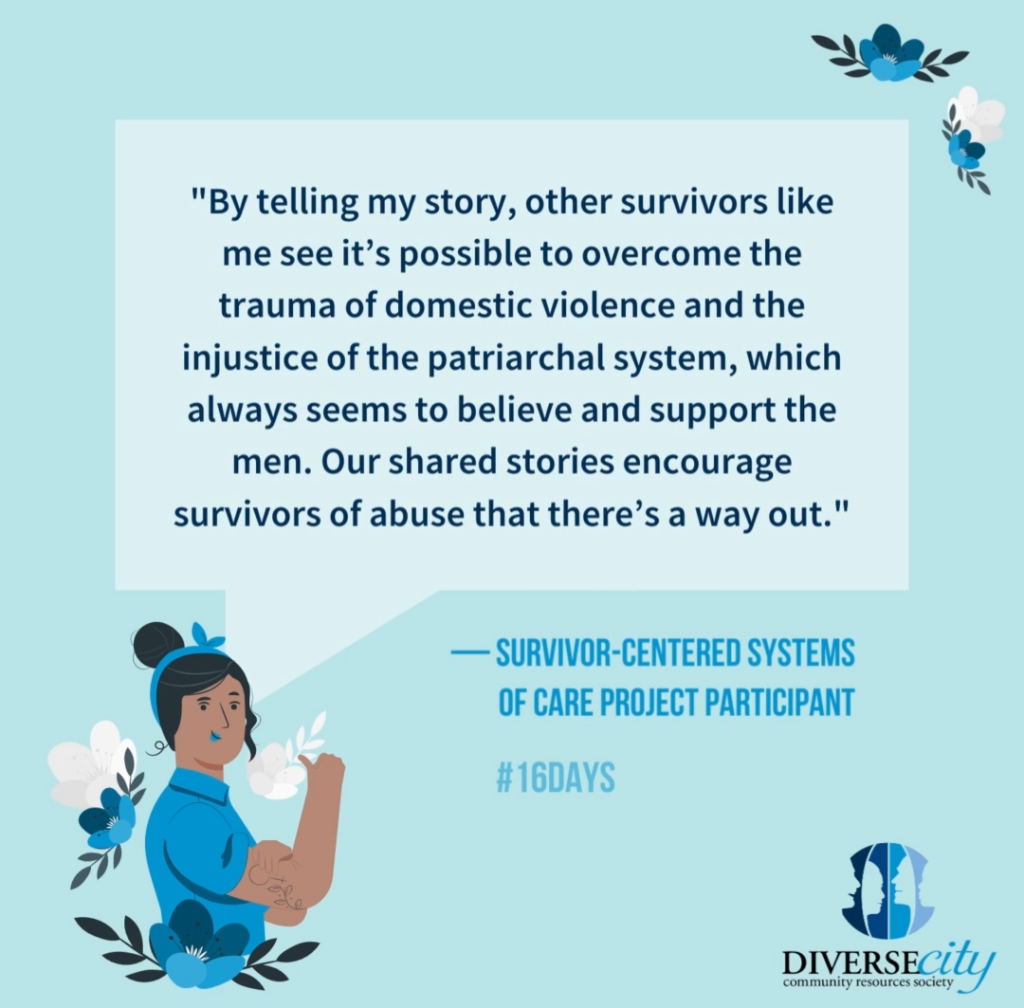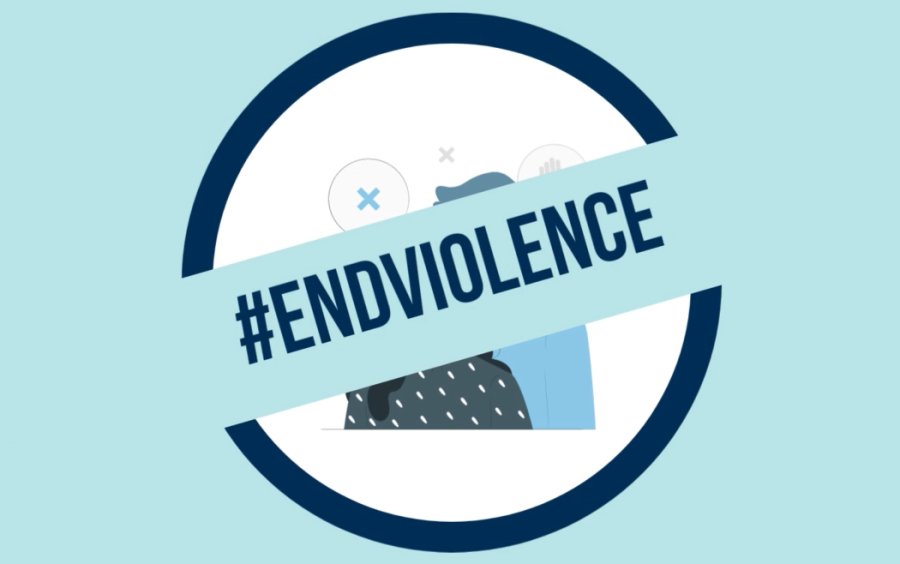We’re in the #16days of Activism Against Gender-Based Violence, a time to talk about the realities of gender-based violence and the harm it causes women as well as non-binary and 2SLGBTQ+ Canadians.

More than 20,000 women experience violence in BC each year. It’s critical to understand the numbers and statistics behind gender-based violence, but it’s also important to listen to the stories of survivors in their own words. While the numbers are startling, hearing the impact violence has had on survivors’ lives is even more distressing. And hearing about their bravery as they rebuild their lives is inspiring.
That’s exactly what DIVERSEcity’s Survivor-Centered Systems of Care Project aims to do. The project centres the experiences of racialized and newcomer women in gender-based violence systems of care and addresses the root causes of gender-based violence. Ten women are being trained and supported as facilitators to lead critical dialogues with gender-based violence systems of care about the experience of being an immigrant or racialized woman dealing with domestic violence in their families and communities, and trying to access mainstream support that is not necessarily culturally informed.
“By sharing their experiences, thoughts and ideas, the intention is that these brave women can help lead service providers in critical reflection and inform systems-based change on the policies and services provided in Canada,” says Nina Rihal, Project Manager, Survivor-Centered Systems of Care Project at DIVERSEcity. “We want to encourage service providers to consider these women’s views and experiences before designing, devising or implementing gender-based violence policies, programs or services.”
“The Survivor-Centered Systems of Care Project provides the space for women to come forward and tell their stories and share their ideas of what is effective to support women of gender-based violence,” says Ala,* a Survivor-Centered Systems of Care Project participant.
Another participant Jani* shares the impact that the sharing of stories can have on other women facing violence. “By telling my story, other survivors like me see it’s possible to overcome the trauma of domestic violence and the injustice of the patriarchal system, which always seems to believe and support the men. Our shared stories encourage survivors of abuse that there’s a way out.”
Building on the learnings from DIVERSEcity’s culturally informed Roots of Safety service planning approach, this project is creating change in the system, advancing more equitable, inclusive policies and practices, increasing the effective sharing of resources in communities, as well as empowering the women themselves to navigate their healing journey without shame.
Participant Vye* says she wants to share her experiences because, “I want to do my part in increasing the participation of immigrant and refugee women and strengthening their voices.”
Learn more about the project here.
*Names changed for privacy.

